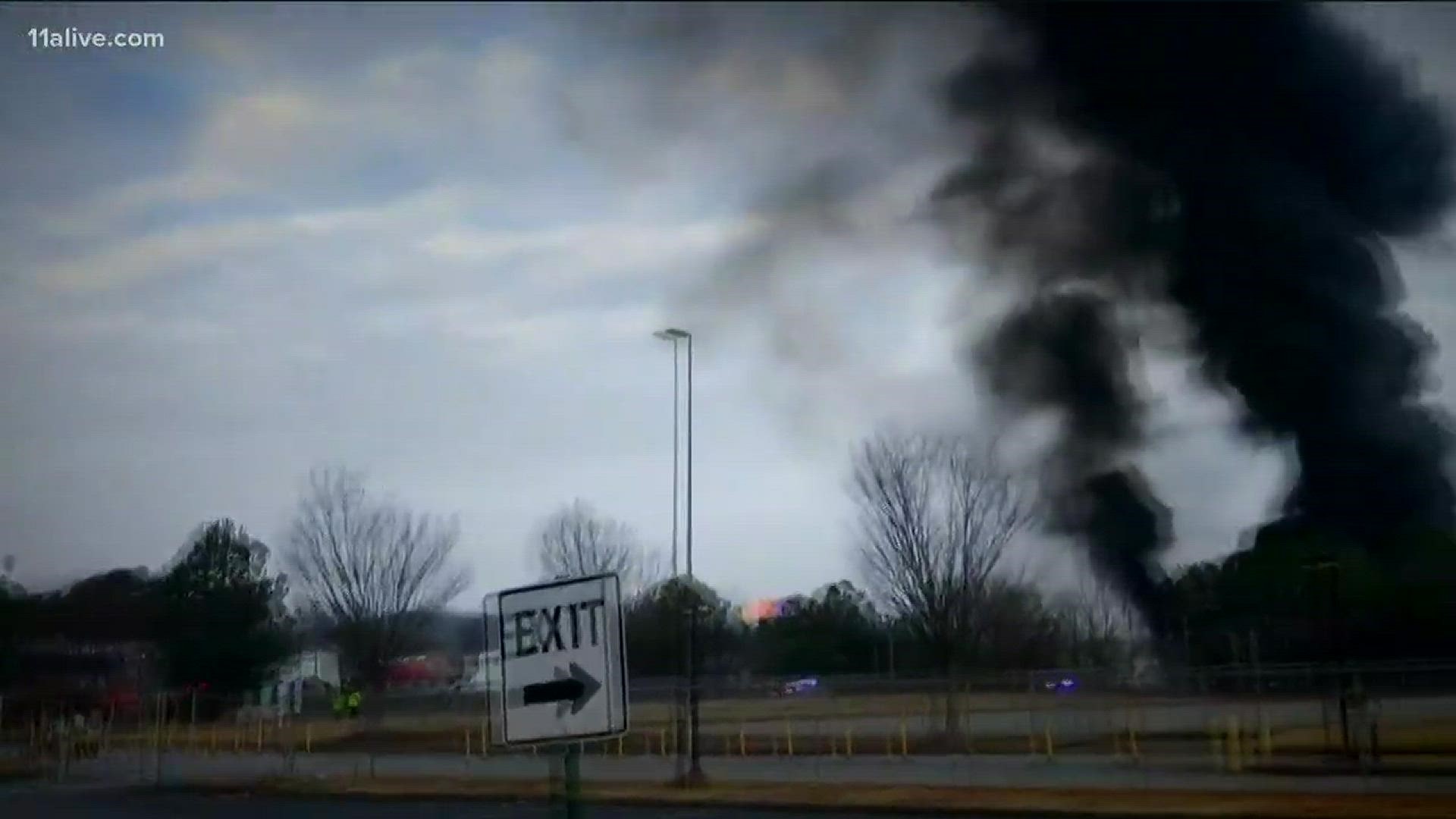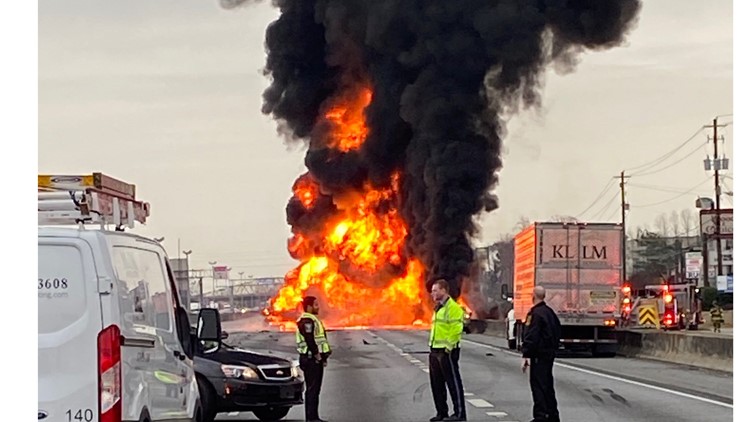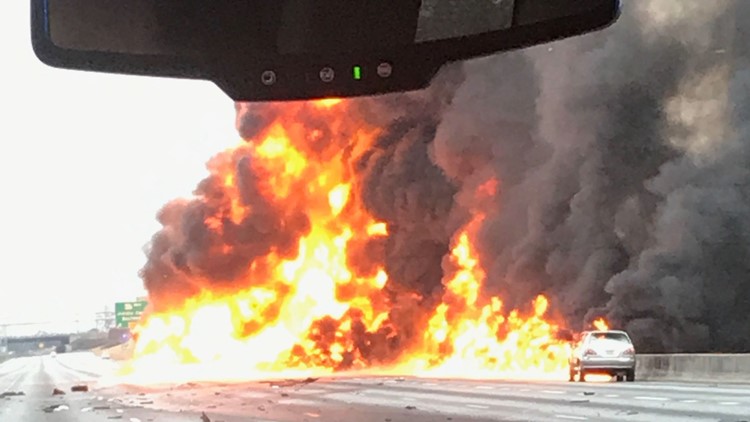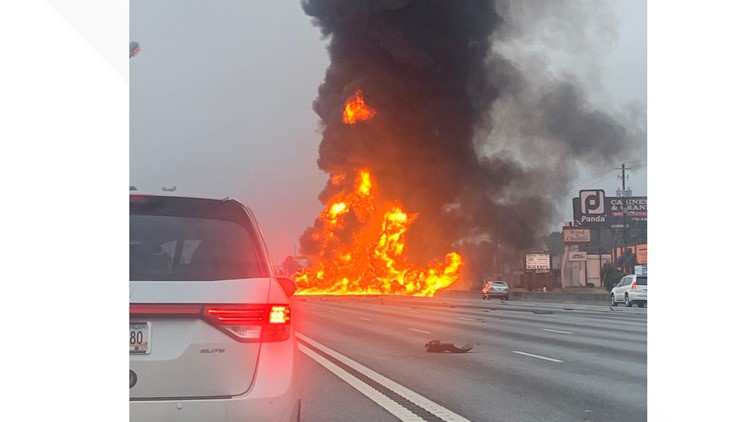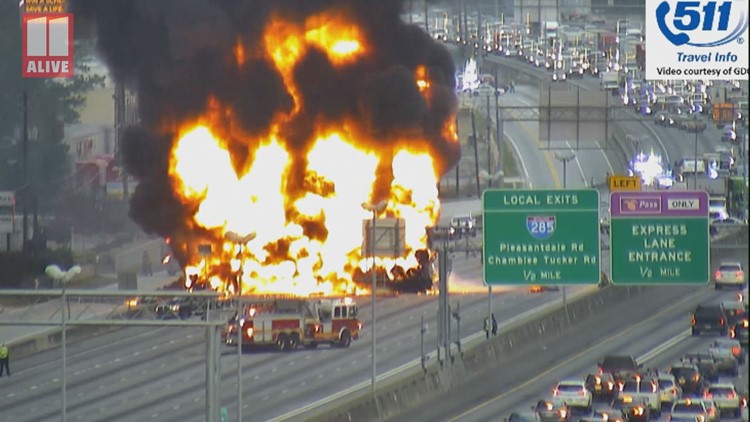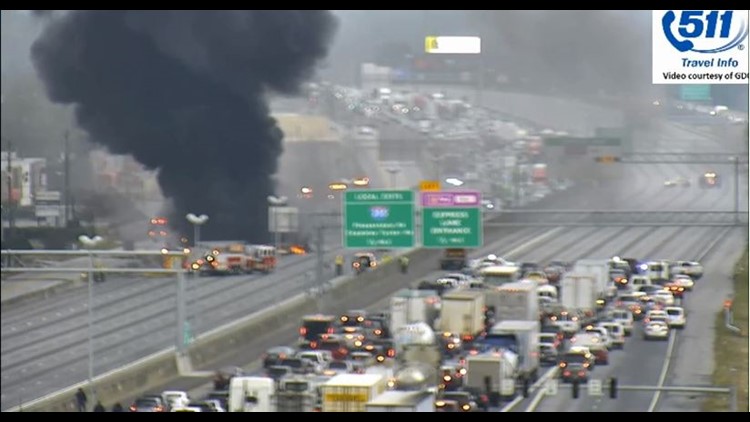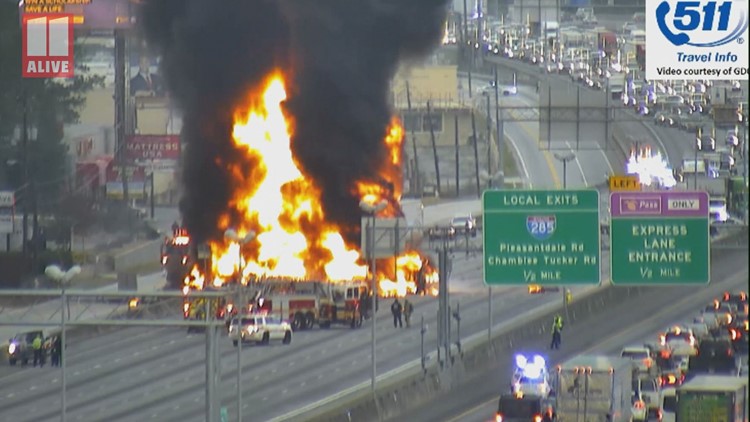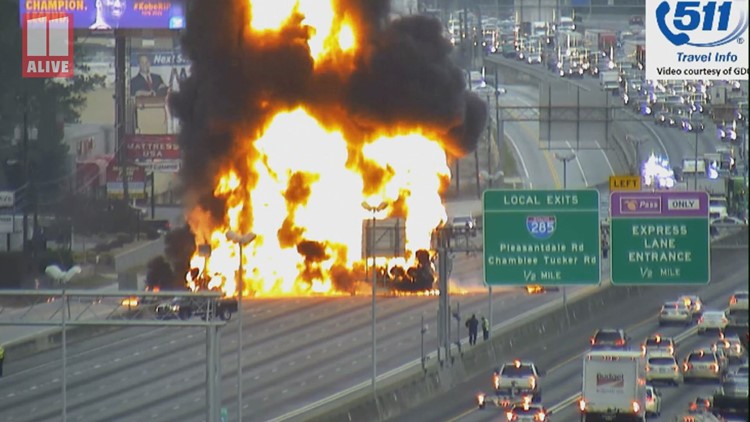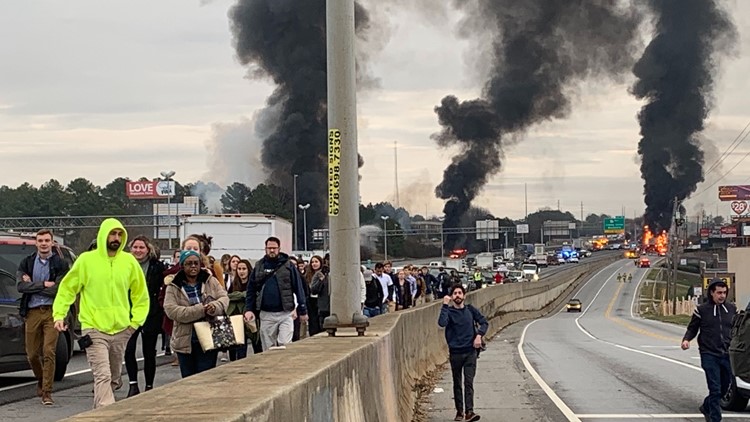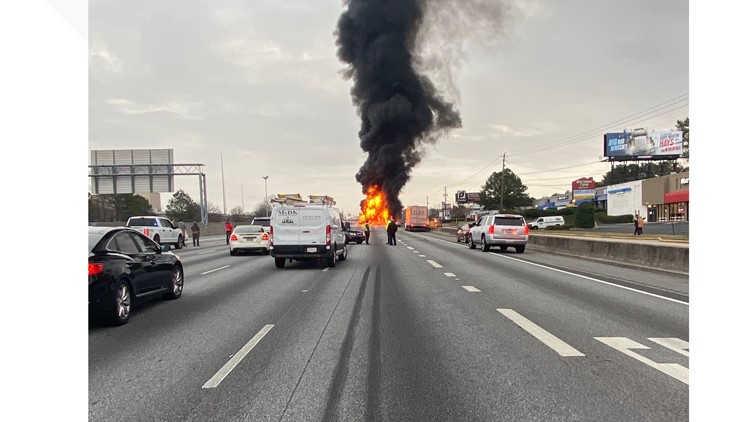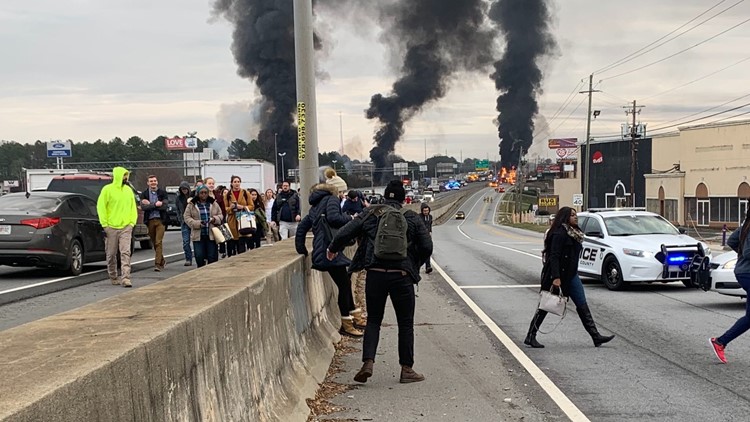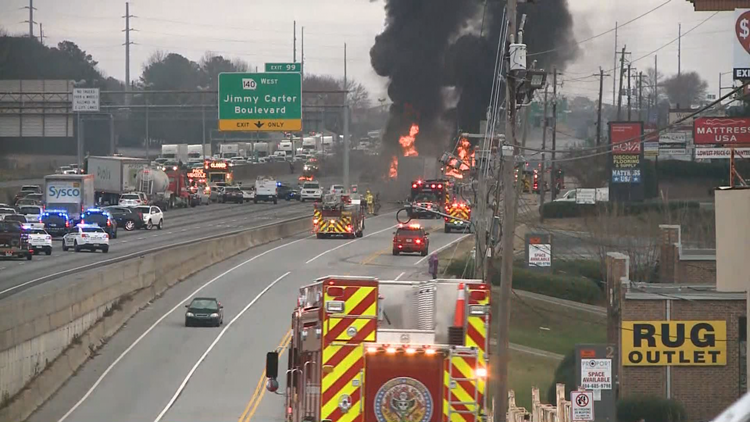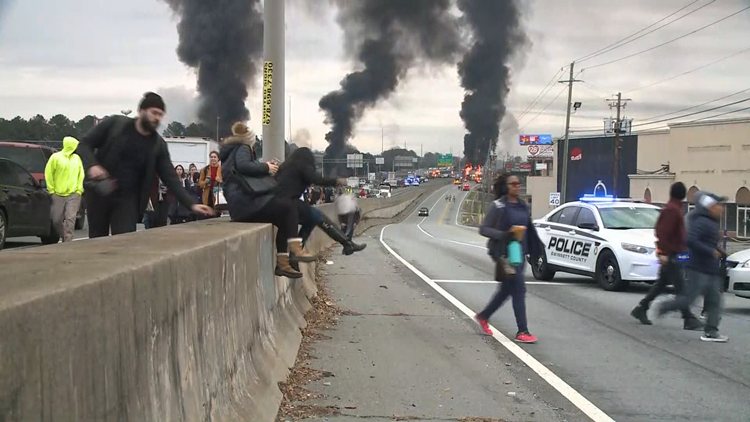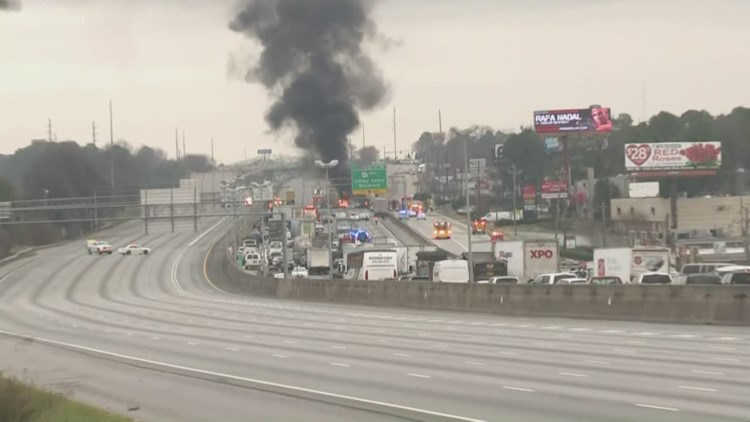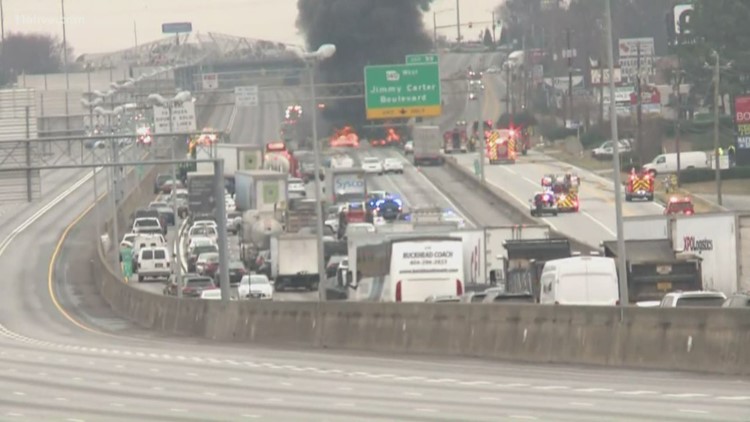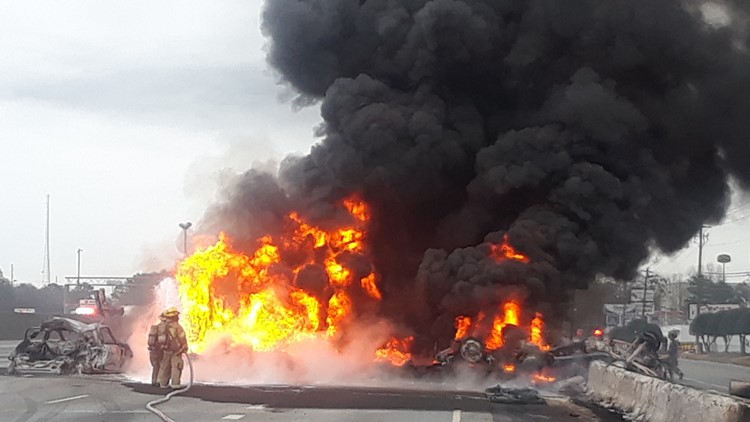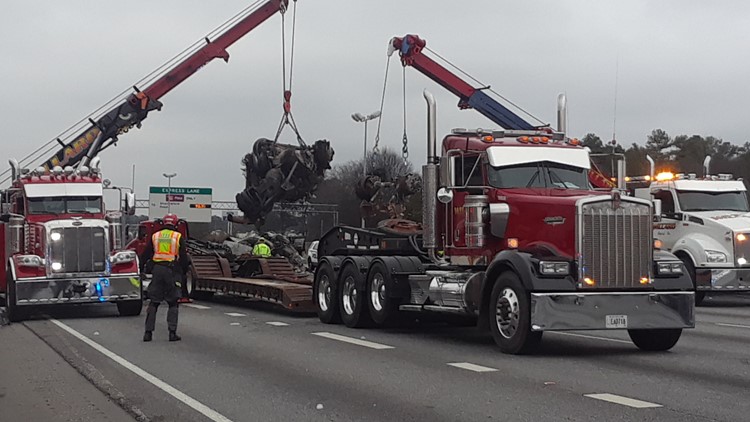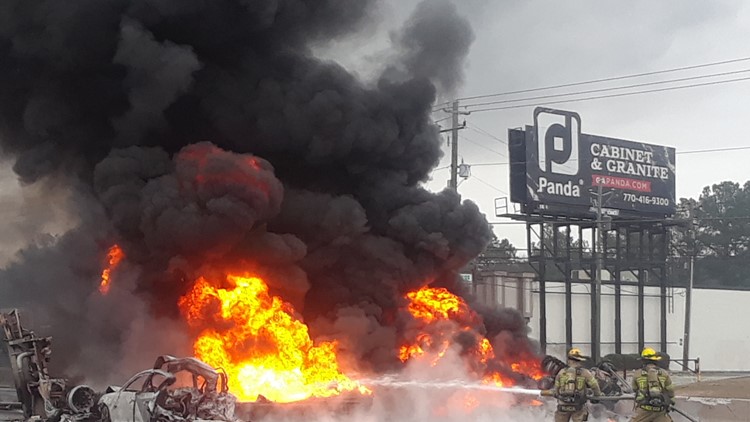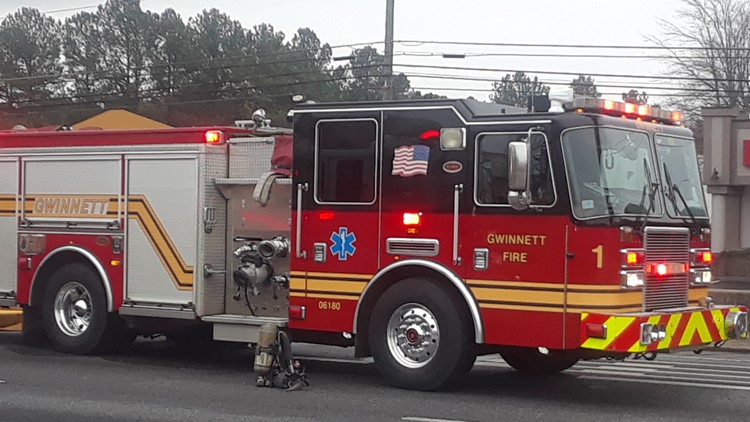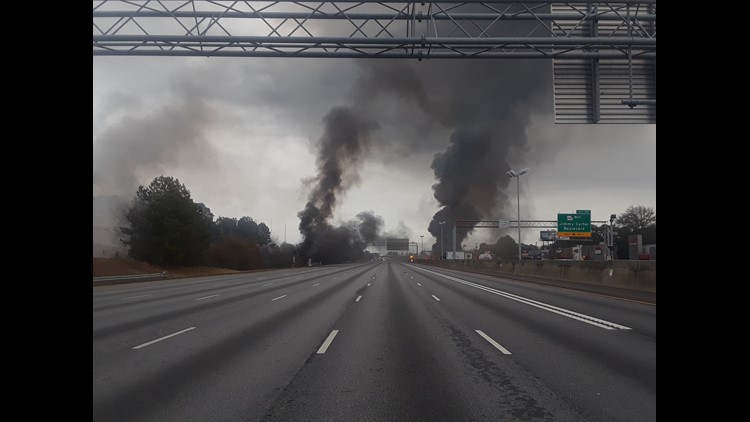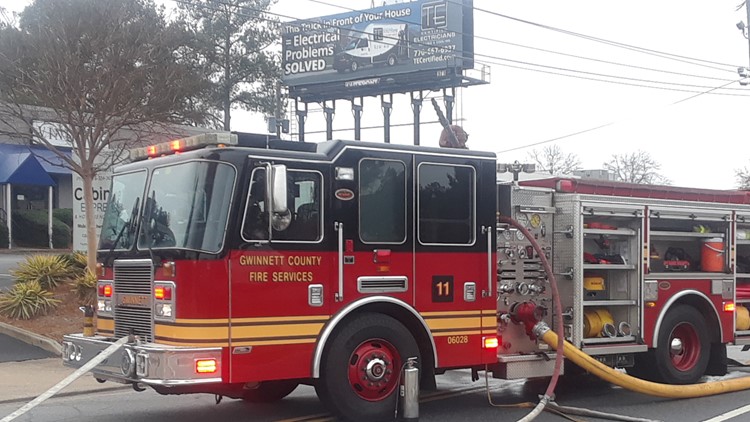GWINNETT COUNTY, Ga. — As motorists found themselves at a standstill due to a massive fire on I-85 on Saturday, it led to an interesting conversation on social media about whether Gwinnett needs a more interconnected transportation system.
With I-85 being the only interstate route directly connecting Gwinnett County to Atlanta proper, Saturday's fire forced many drivers commuting to and from the populous metro Atlanta county to seek other, sometimes slower, routes.
But in Gwinnett, where voters turned down a possible multi-billion dollar tax-funded expansion of the Atlanta-based transit system, many are still divided on whether public transportation - or at least MARTA - would relieve more headaches than it could create. There was also question of whether the service would have even been a reliable form of alternate transportation in major emergencies like Saturday's fire.
Massive fire on I-85 after crash
What you said
11Alive is where Atlanta speaks and more than 300 Facebook users did exactly that.
Commenters like Mike Fair said it's past time for Gwinnett and other counties to allow expansion.
"Metro Atlanta is growing tremendously," he said. Marta needs to be expanded, actually it should have been expanded years ago."
And Pastor John Valentine said that it saves money for many in the long run.
"Every county should have Marta, it saves on gas, traffic accessibility etc," he said. "I live Conyers/Covington but drive to Decatur to get it. I still save time and money."
Meanwhile, Daniel Mason says public transit is the answer - just not MARTA.
"Marta cannot maintain what they currently own. I hope that the citizens of gwinnett continue to vote no. Dont get me wrong Atlanta needs public transit," Mason wrote. "However the patrons who use Marta are constantly getting shafted. Marta has no customer service and a MONDAY THRU FRIDAY 9 to 5 mentality."
He went on to say MARTA is an "embarrassment in its current state."
Eva Levine-Mullaney, however, said an aversion to an Atlanta-connected mass transit system isn't why many were against the MARTA expansion into Gwinnett County.
"The first years of the Gwinnett money was going to be used to fortify the Atlanta portion of the MARTA," she said. "I have no problem with MARTA coming to Gwinnett providing that the money that Gwinnett taxpayers contribute actually goes towards the Gwinnett portion of MARTA."
She added that a section of the proposal regarding its funding also left a sour taste in the mouths of some Gwinnett voters.
"The bill also stated, that if the one cent tax was not enough, then Gwinnett County would have to find other ways to pay for the expansion," she wrote, adding that she thought it would come from a hike in property taxes.
Meanwhile, there were others that suggested that having a MARTA train wouldn't have necessarily offered a travel alternative since there was a possibility it would have been shut down due to the many nearby fires near the accident scene as well.
Several hundred gallons of fuel are believed to be responsible for extra explosions and the need for drivers and businesses alike to evacuate during the frightening turn of events on Saturday.
The I-85 bridge collapse and MARTA
However, there was at least one point in the fairly recent past when MARTA ended up being a major benefit for commuters - and it involved I-85 as well.
The I-85 bridge collapse in Atlanta back in 2017 left may daily commuters with two options: find a new route to work - which could add hours to a previously short commute - or take MARTA.
During that time, some chose MARTA. And, in the weeks during the bridge reconstruction, MARTA trains could often be seen rumbling quickly along as drivers stuck in traffic jams sat still.
But, later numbers suggest whatever boost it got in 2017 from possible new commuters apparently wasn't enough to boost its numbers. MARTA ridership was actually down for the year. A federal report said it dropped 2.6 percent in 2017. MARTA officials said it was actually closer to 5.2 percent down.
Gwinnett's previous decision
Gwinnett County last took on the question of MARTA in March 2019, voting 54.3 to 45.7 percent against the $5 billion expansion - though only roughly 17 percent of eligible voters, about 92,000, participated. The plan was to fund the rail through a one-cent sales tax.
The proposed rail would have eventually reached the area of Jimmy Carter Boulevard - or roughly the area where northbound traffic was cut off by Saturday's wreck for nearly 10 hours.
MORE HEADLINES

